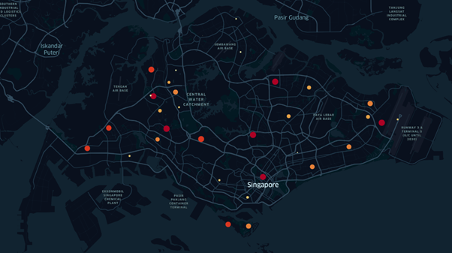|
MOBILE LOCATION DATA RESOURCES
TECH DOCS Cross Account Bucket Access - AWS Integration Create a Database, Table and Partition How To Run Basic Location Data Queries
PUBLISHER SOLUTIONS Consent Management Knowledge Base
|
Larger Scale and Volumes - Due to the large quantities of ad requests globally, Bidstream location data is readily available in large quantities in comparison to data from App Publishers / GPS data.
Low Quality and Inaccurate Data - Bidstream, however, is an unreliable source of location data. This is for two main reasons. Bidstream is notoriously inaccurate because the data is derived from the cached information stored within the phone’s location settings due to the speed at which ads are required to be requested and placed on apps. Given this, it is no surprise that Bidstream is not exactly preferred by companies using location data for business-critical analysis and decision making.
The low accuracy could also be attributed to Latitude and Longitude (lat/long) values sourced from IP addresses. IP addresses cannot be precisely converted to lat/long coordinates, however, in Bidstream data, it is not uncommon to see lots of records pointing to the exact same location as IP data is converted to default coordinate (lat/long) values.
 In this image, we see Bidstream data in Singapore showing large numbers of users in what are generally ‘unlikely’ locations, including the jungle. Each dot represents thousands of users in one location at a given time. While Singapore is densely populated, the likelihood of that many people being present in a forested area in the west is low.
In this image, we see Bidstream data in Singapore showing large numbers of users in what are generally ‘unlikely’ locations, including the jungle. Each dot represents thousands of users in one location at a given time. While Singapore is densely populated, the likelihood of that many people being present in a forested area in the west is low.
So, what’s going on? The problem stems from the fact that when location database providers cannot find lat/long coordinates for a device, they automatically point it to an often random location – in this instance various residential and non-residential areas in Singapore.
These practices can result in tens or hundreds of thousands of people appearing to be located in the middle of a park, suburban area, or even a jungle! (See this famous case from Kansas)
There are a few easy identifiers of Bidstream data. Check if your vendor is sharing specific app names. App names are typically only provided if the data is being gathered via Bidstream. Apps in the Religious, Lifestyle & Health categories are considered sensitive and personal, and disclosure of such information is in violation of developer guidelines and data privacy laws both for the sellers and buyers. The presence of app names in a dataset is a dead giveaway that the data has been procured of real-time bidding (RTB) of Bidstream data (of which location data is a ‘by-product’)
Based on observation and feedback received from partners and customers who have evaluated data from a different supply source most apps included in the data (suspected Bidstream data) were not even providing GPS data. This indicates that the location data provided in the dataset was derived from the Bidstream via reverse IP lookup. In one instance the data provider was showing 9X more signals on only 2X more devices. The awareness for such indicators is valuable in evaluating location data sources to avoid procuring low-quality Bidstream data. A few other common Issues with Bidstream Data are:
- Precise location is not collected
- Precision issues based on User Input or the IP address of the device
- Sink detection – specific coordinates occurring at impossibly high rates
- Cached IP address
- Teleporting
- Jumpiness
- Clustering
Main body text.